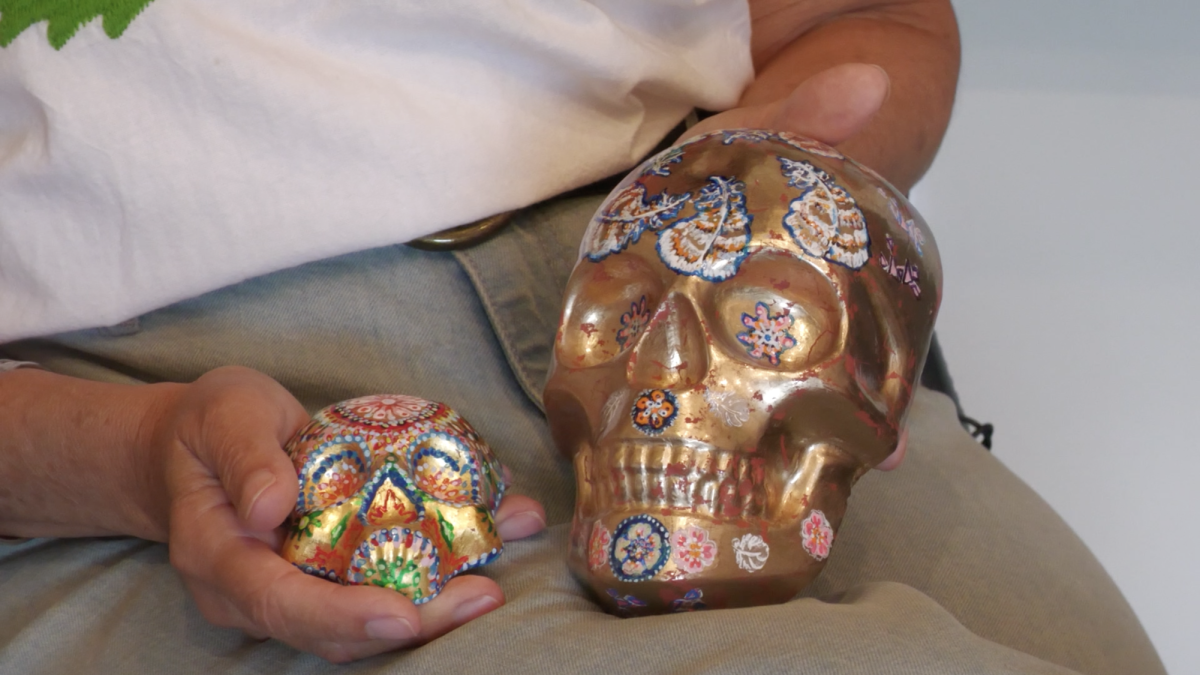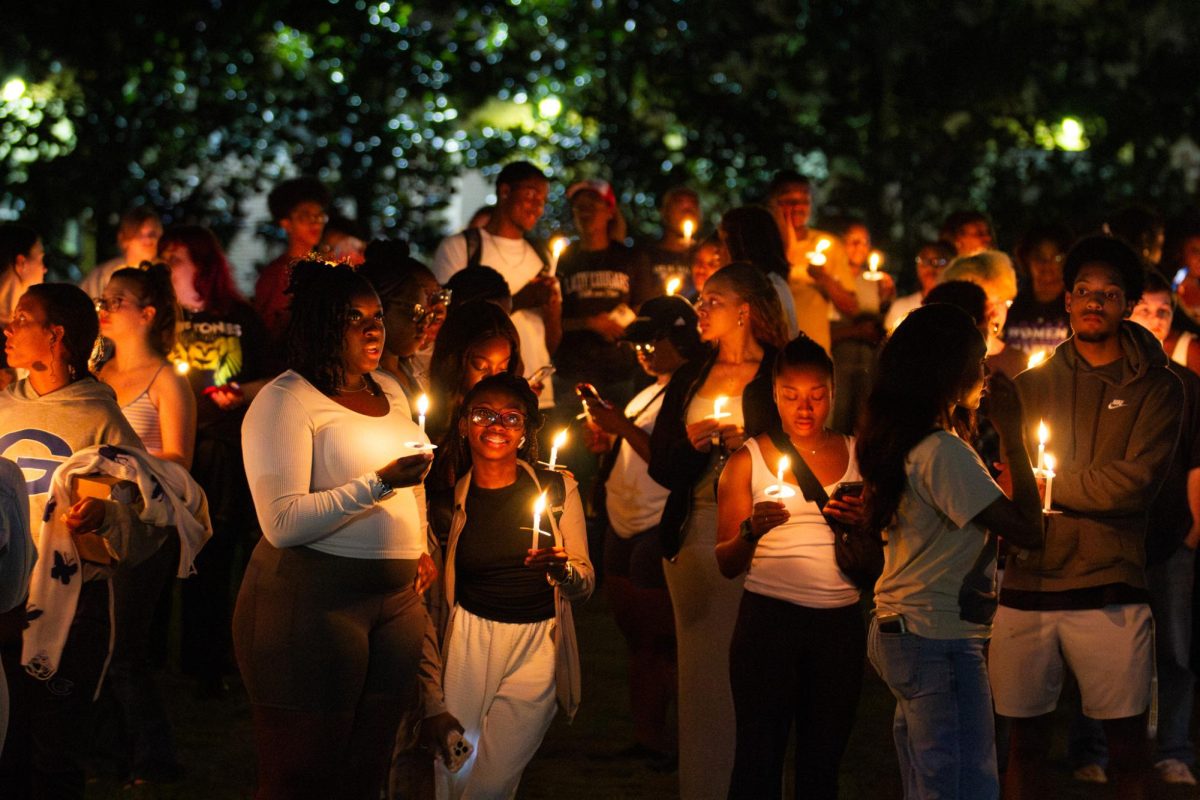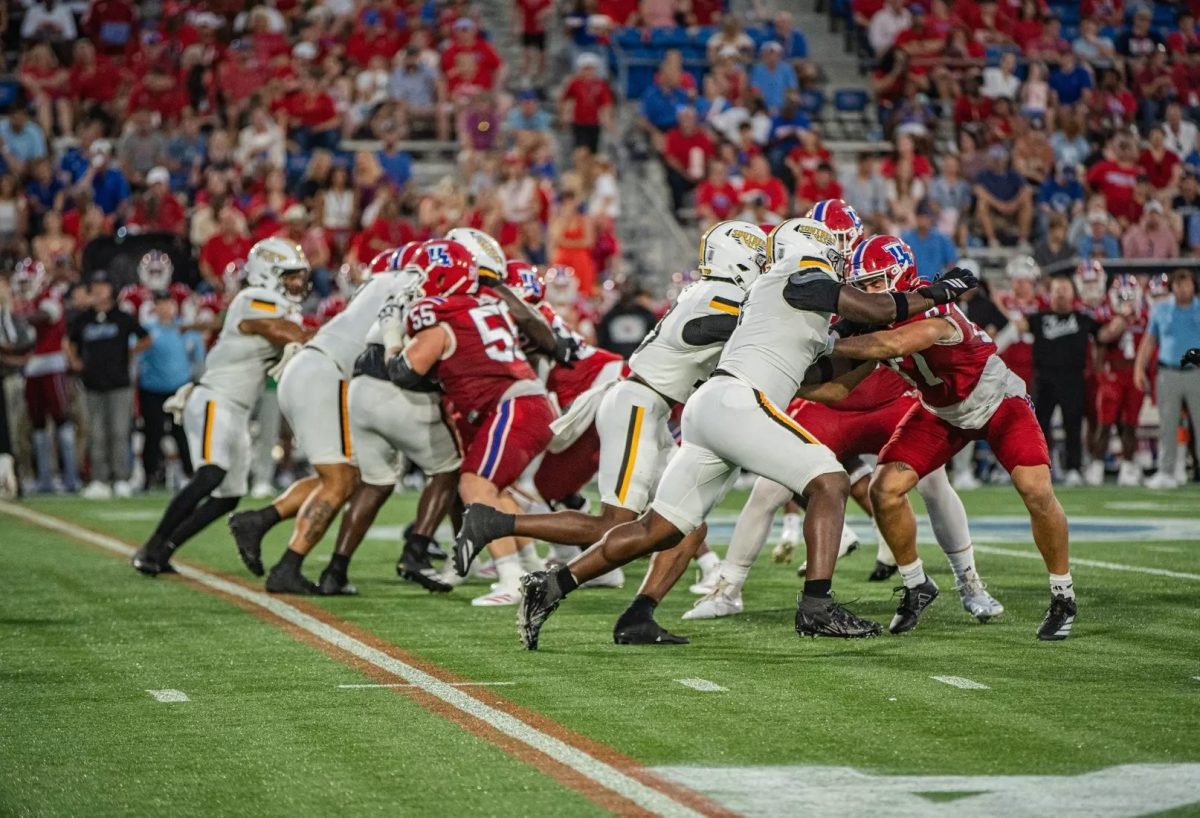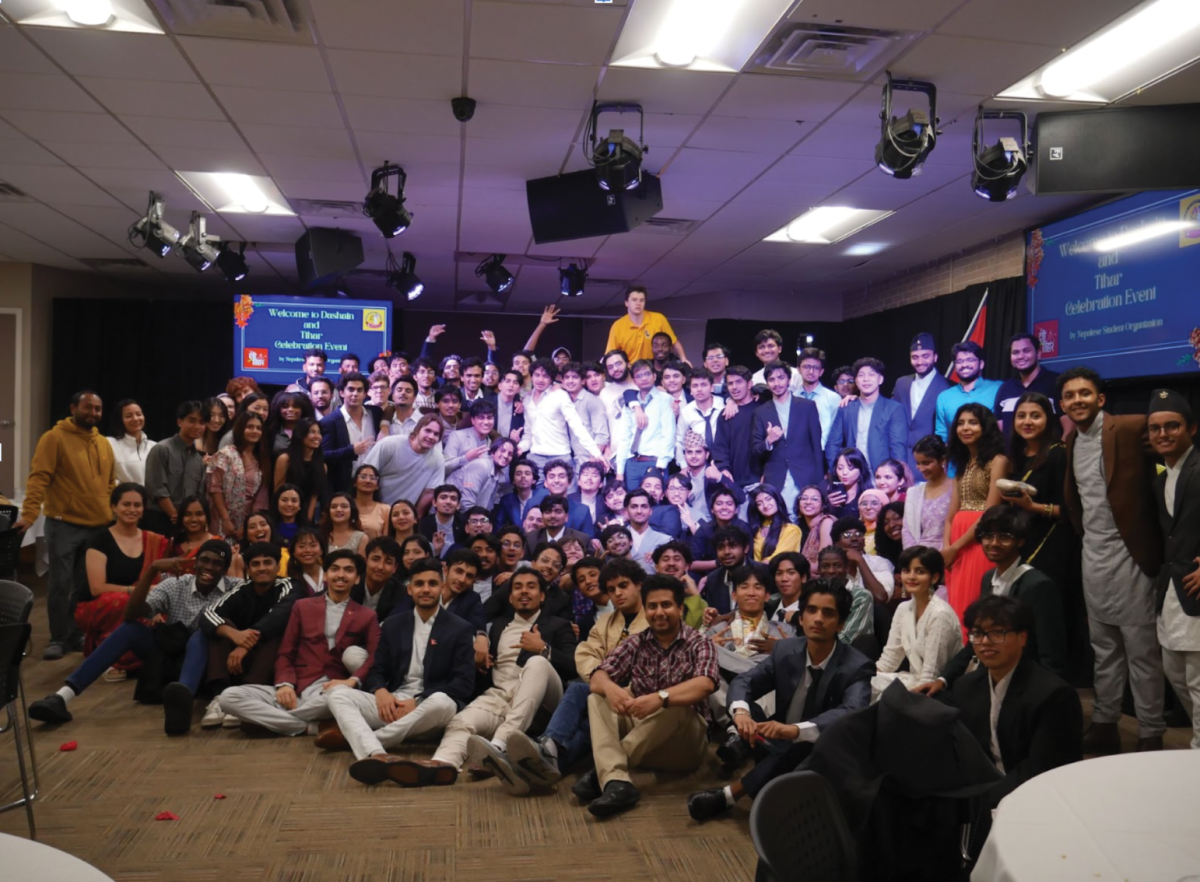The University of Southern Mississippi transformed into a vibrant hub of South Asian culture last weekend as the Nepalese Student Association hosted a grand Dashain Tihar, or Diwali celebration that drew students, faculty, and staff from across the USM community on Nov. 11.
Diwali, also known as the Festival of Lights, is one of the most significant Hindu festivals, celebrated to mark the triumph of good over evil, light over darkness, and knowledge over ignorance across South Asia. The five-day celebration is a time for families and friends to gather, exchange gifts, and illuminate their homes with rows of oil lamps, known as diyos, symbolizing the dispelling of darkness and the fostering of hope.
Dashain is a festival that is primarily celebrated in Nepal. Although other regions in South Asia celebrate similar festivals like Navaratri, Dashain is unique as it lasts for 15 days. For its followers, it represents the victory of the goddess Durga over the demon Mahishasura, who had terrorized the devas and taken over their abode of Swarga. The first nine days of Dashain symbolize the battle that took place between the different manifestations of Durga and Mahishasura. The tenth day is the day when Durga finally defeats him. For some, this festival also symbolizes the victory of Rama over Ravana as recounted in the Ramayana. In general, it symbolizes the triumph of good over evil.
For international students in USM, these festivities bring a way to build community, as they rejoice to fit two festivals into one big celebration. The event took place in the Baptist Student Union, and students from different backgrounds gathered to celebrate during this auspicious time.
The highlight of the event was the performances, a lively cultural extravaganza that celebrated not only Nepali but South Asian culture itself. The event featured an array of traditional dance performances, including Nepali, classical, and Bollywood music.
The audience was captivated by the graceful movements and expressive storytelling of the dancers and singers, who brought the rich traditions to life. In addition to the captivating performances, the event also featured an enticing array of food stalls serving authentic Nepali cuisine. The aromas of Basmati Rice, Goat Curry, and Chicken Curry wafted through the air, tempting attendees. The event ended with games and audience dances, which served as a way of community building for many.
This celebration served as a resounding success, bringing together the university community to celebrate the diversity and richness of South Asian culture. The event fostered a sense of inclusivity and understanding among students, faculty, and staff from various backgrounds, promoting global citizenship and cultural appreciation.
“This is a time for joy, togetherness, and the celebration of light over darkness,” said Janit Rajkarnikar, treasurer for the Nepalese Student Association. “We are delighted to see the USM community come together to celebrate with us.” The International Student and Scholars Services (ISSS) as well as the NSA team were pleased with the event’s success. The event fostered cross-cultural understanding and appreciation, strengthening the bonds within the university community and promoting a sense of belonging and shared humanity.
























